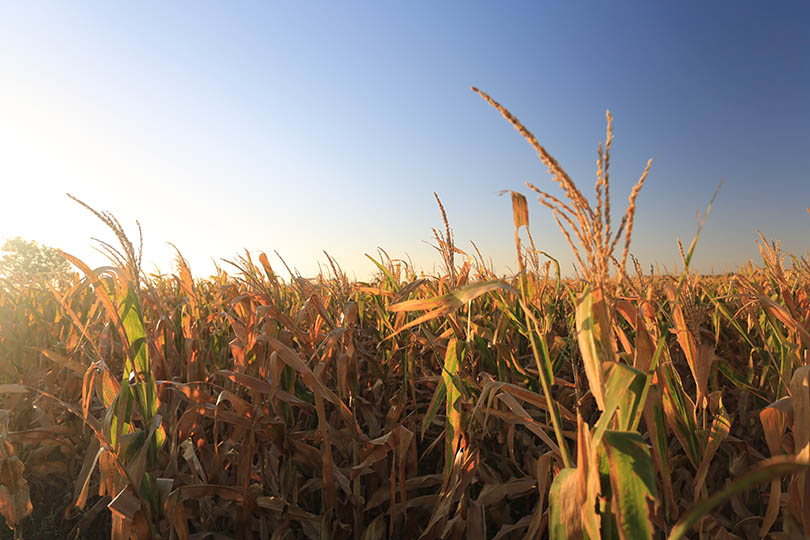By Jessica Domel
Multimedia Reporter
A record corn crop meant harvest and storage delays for some farmers in North and Central Texas this year.
Production in some places simply outpaced grain elevators’ capacity, Texas Corn Producers reported. Lower prices for other commodities like wheat and grain sorghum also compelled some farmers to hang on to their grains, which yielded well this year.
“There was an issue through the harvest season, especially with the later planted stuff, because elevators filled up pretty quickly due to the above average corn crop and a lot of acres planted,” Aaron Martinka, Buckholts area farmer and Texas Corn Producers board secretary, said. “It didn’t take long for everything to fill up.”
The issue was compounded when grain sorghum and corn were being harvested at the same time.
As a result, some farmers put some corn in bags. One elevator stored some corn outside on the ground.
“There’s a fair amount that just got left on the stalks,” Martinka said. “It was stored that way, and it got harvested as the crop in the elevator was moved out.”
Central Texas farmers experienced a similar situation in 2014 due to another good corn crop.
“It’s a good problem to have,” Martinka said. “Here in Central Texas, everybody asks, ‘What is your yield? What’s your average yield?’ Average yield is just average of the extremes. You can’t justify the storage for the really good years. In those years, you just deal with it.”
On-farm storage has dramatically increased over the years, Martinka said. But the storage issue is still a problem from time to time.
“The potential of the hybrids we plant now is greater when we do hit them,” Martinka said. “There’s just more acres going into corn. Wheat acres declined. Those flowed into corn. Milo (grain sorghum) acres have significantly declined. The default is corn. When someone doesn’t want to plant another crop, they go into corn.”
According to David Gibson, executive director of Texas Corn Producers, farmers in the area north and east of Dallas also reported the storage supply issue.
It doesn’t appear there will be a similar problem in the Texas Panhandle.

